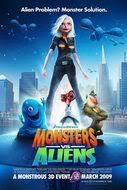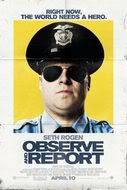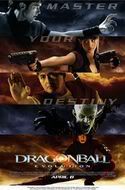The Lion King ( 1994 )
Runtime: 90 mins
Genre: Childrens
Theatrical Release:Jun 24, 1994 Wide
Review :
The circle of life, as described in and borne out by "The Lion King," is a cycle of evolution. Birth, growth, maturity, decline: nothing is immune to change, not even Disney animation.
Genre: Childrens
Theatrical Release:Jun 24, 1994 Wide
Review :
The circle of life, as described in and borne out by "The Lion King," is a cycle of evolution. Birth, growth, maturity, decline: nothing is immune to change, not even Disney animation.
Taking its place in the great arc of neo-Disney classics that began with "The Little Mermaid," "The Lion King" is as visually enchanting as its pedigree suggests. But it also departs from the spontaneity of its predecessors and reveals more calculation. More so than the exuberant movie miracles that came before it, this latest animated juggernaut has the feeling of a clever, predictable product. To its great advantage, it has been contrived with a spirited, animal-loving prettiness no child will resist.
Let's put this in perspective: nobody beats Disney when it comes to manufacturing such products with brilliance, precision and loving care. And films that lure the lunch-box set never lack for blatantly commercial elements. Still, the wizardry of "Beauty and the Beast" managed to seem blissfully formula-free, while "The Lion King" has more noticeably derivative moments. Strangely enough, the fact that this film has an original story makes it less daring than Disney films based on well-known fairy tales.
"The Lion King," which opens today for a limited run at Radio City Music Hall before expanding into wide release on June 24, is about Simba, a cub who endures certain rites of passage before becoming ruler of his kingdom. Describing the classic hero's journey in baby-Joseph Campbell fashion, the screenplay (by Irene Mecchi, Jonathan Roberts and Linda Woolverton) adds a touch of Shakespeare for good measure.
In addition to his noble father, Mufasa (with the voice of James Earl Jones), Simba is also influenced by his delectably wicked uncle, Scar (Jeremy Irons). Scar arranges Mufasa's disturbing on-screen death in a manner that both banishes Simba to the wilderness and raises questions about whether this film really warranted a G rating. (In addition to the trampling of Mufasa by a herd of computer-generated wildebeests, there is also a violent fight at the end of the story.)
This tale, with its emphasis on myth making and machismo, has no heroine, unlike its immediate predecessors. Nor does it rely as effectively on music, although songs by Elton John and Tim Rice are interjected into the action at regular intervals. ("Can You Feel the Love Tonight," an obligatory romantic ballad that accompanies the grown-up Simba's romp with a lioness friend named Nala, has been shoehorned into the film for particularly gratuitous reasons.)
Instead, its seriousness is leavened with various sure-fire forms of comic relief, humor of the sort that is a true Disney specialty. "The Lion King" counts on the wittiest group of voices Disney has yet assembled -- also including Nathan Lane, Whoopi Goldberg, Matthew Broderick and Rowan Atkinson, the mixed-up minister from "Four Weddings and a Funeral" -- to advance its story.
And once again, Disney's animators (under the direction of Roger Allers and Rob Minkoff) display their anthropomorphic genius. All of the film's secondary characters are clever and colorful, with Mr. Lane's wisecracking meerkat, Timon, and Mr. Atkinson's worried hornbill, Zazu, as special standouts. Together with a vibrant palette and grandly scenic African landscapes, these elements give the best of "The Lion King" a bright, energetic appeal.
For the grown-ups, there is Mr. Irons, who has been as devilishly well-captured by Disney's graphic artists (Scar's supervising animator: Andreas Deja) as Robin Williams was in "Aladdin." Bored, wicked and royally sarcastic, Mr. Irons's Scar slithers through the story in grandiose high style, with a green-eyed malevolence that is one of film's chief delights. "Oh, and just between us, you might want to work on that little roar of yours, hmm?" he purrs to Simba, while purporting to be a mentor to his young nephew. Scar, who also gives a reprise of Mr. Irons's best-known line from "Reversal of Fortune," may not be much of a father figure, but he's certainly great fun.
That's not the case with the solemn Mufasa, who is given the job of articulating the film's very 1990's heroic ethos. The message boils down to something like "Find Your Inner King," and Mufasa is sometimes positioned against a starry sky to emphasize his noble stature.
"Look inside yourself, Simba," he says mystically at one juncture. "You are more than what you have become. You must take your place in the circle of life." At least this is soothingly vague, unlike Mufasa's early announcement that his son will be king of "everything the light touches" within his field of vision. When it comes to its characters' regal heritage, the film manages to sound simultaneously caring, sensitive and power-mad.
Later on, straying from his life of privilege, the golden boy Simba is waylaid by three hoodlum hyenas (Ms. Goldberg, Cheech Marin and Jim Cummings) in a burned-out region that is this story's version of an inner city. At times like this, the subtext definitely gets dicey; "The Lion King" is in all ways on safer ground with the lush, sweeping landscapes that provide most of its backdrop. Among its most visually stunning sequences are the opening musical episode, dazzlingly introducing all the denizens of the animal kingdom, and a comic number in which young Simba is taught, among other things, how to survive on a diet of brilliantly colorful bugs.
The film's musical numbers are a peculiar hybrid of Mr. John's bouncy, irrepressible pop sensibility and Mr. Rice's fastidious, remarkably joyless lyrics. These songs are very different from the earlier films' Alan Mencken-Howard Ashman numbers, but they are used in strenuously similar ways. The Oscar-ready love ballad and the big, gala production number, once so fresh, have become Disney staples by now.
Sometimes the derivativeness is just plain irritating, as with the cute, lilting "I Just Can't Wait to Be King," which sounds as if Michael Jackson were singing "Under the Sea." Pop music doesn't get any safer than that; nor does it get any more familiar. The soundtrack of "The Lion King" also includes a version sung by Mr. John, free of those encumbrances and delivered as a nice, clean jolt of rock-and-roll. A song, like anything else, works best when it has a style all its own.
Synopsis :
Synopsis: Wild Africa is the setting for this animated tale of a young lion cub whose evil uncle usurps his father's crown and lets hyenas overrun the kingdom (borrowing elements of both Hamlet and Richard... Wild Africa is the setting for this animated tale of a young lion cub whose evil uncle usurps his father's crown and lets hyenas overrun the kingdom (borrowing elements of both Hamlet and Richard III). Dodging danger and befriending some oddball characters, the cub wanders until the day he's ready to return. Songs by Elton John and featuring the voices of Whoopie Goldberg, Cheech Marin, James Earl Jones, Matthew Broderick, Nathan Lane and Jeremy Irons. Academy Award Nominations: 4, including 3 for Best Original Song. Academy Awards: 2, including Best Original Score and Best Original Song (Elton John and Tim Rice: "Can You Feel the Love Tonight").
Starring: Matthew Broderick, Jeremy Irons, James Earl Jones, Whoopi Goldberg, Robert Guillaume, Cheech Marin, Jonathan Taylor Thomas, Ernie Sabella, Jim Cummings, Madge Sinclair, Moira Kelly, Nathan Lane Director: Roger Allers, Rob Minkoff Composer: Hans Zimmer Screenwriter: Irene Mecchi, Jonathan Roberts Studio: Buena Vista Internationa




















0 comments:
Post a Comment